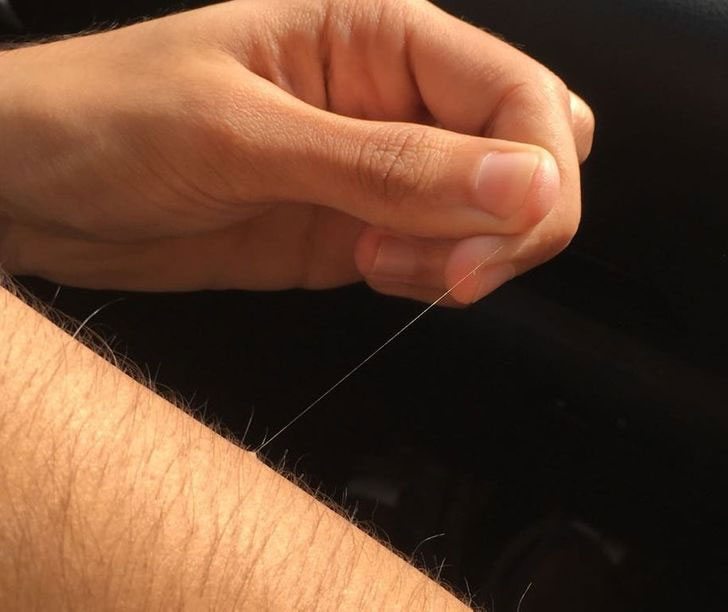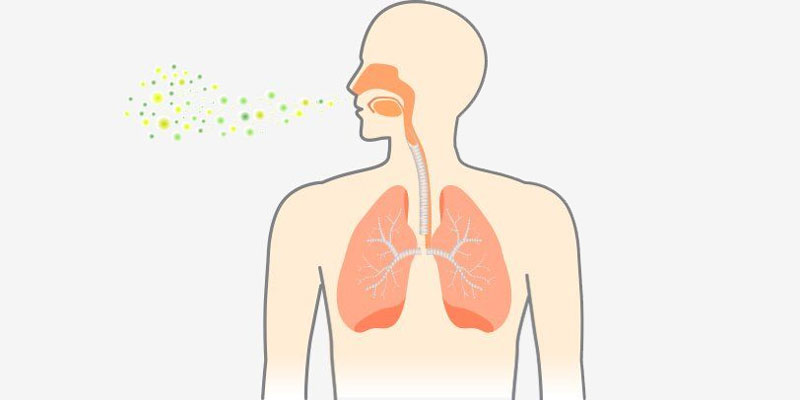
It is possible to be startled by the finding, and it may not be very comfortable if you are in public when you make the realization. Still, it is extremely usual for random hairs to grow up in areas where you wouldn't anticipate them, particularly at one age. This article will explain why this occurs and provide information on removing unwanted Dark Hair permanently. It's possible that a single hair follicle went off course, which resulted in the growth of a single long, black hair in an unexpected place. The part of a hair's lifecycle known as growth is responsible for determining its properties, including its length and diameter.

Because testosterone is an androgen, they are found in larger concentrations in men. If a woman's body generates an excessive amount of androgens, she may increase the amount of body hair she normally has. Several drugs, including cyclosporine, minoxidil, phenytoin, and others, have been linked to an increase in unwanted hair development. This condition should be determined as soon as possible rather than later.
Reason
In reality, solitary hairs that are dense, black, and coarse make up the vast majority of inches. Most women have at least one on their body in some form. It is common for them to appear on the chin, although women may have them everywhere on their body, including the cheek, arm, area close to the belly button, etc. You may blame androgens, which are sex hormones that we all generate, and, more precisely, how your hair follicles respond to the overall balance of those hormones, largely dictated by heredity. If you have a family history of male pattern baldness, you may be more prone to it. You may notice an increase in the density of these hairs during periods of hormonal transition, such as pregnancy or menopause.
To get rid of the stray hair, feel free to use your tweezers; contrary to widespread belief, plucking undesired hair will not cause it to increase or grow back thicker than before. You might also see a dermatologist about more permanent remedies, such as electrolysis if the reappearance of the black strands is something that causes you a great deal of discomfort. Be sure to bring up the issue with your primary care physician if you find that the hair on your face or body is becoming coarser and dense. A hair change of this sort is a frequent sign of PCOS. PCOS is also known as polycystic ovary syndrome (PCOS).

Ways to get removal
Pluck Individual Hairs
Plucking a random hair may work better than shaving it since there is normally a longer period for regrowth when you jerk." [citation needed] "Plucking a random hair may work better than shaving it." Depilatory creams are an additional excellent alternative since they help break down the hair at the skin's surface without causing discomfort to the user. Some depilatories also diminish the density of the hair and its length, resulting in hair that is finer, shorter, and less frequent in its subsequent growth.
Use An At-Home Hair Removal Device.
These annoying hairs are now much simpler to cure at home, thanks to the development of do-it-yourself laser and light-based hair removal devices that the FDA has authorized as long as you adhere to the manufacturer's instructions. Additionally, a full-body treatment can be completed in ten minutes or less.
Try In-Office Laser Hair Removal
Some at-home hair removal systems aren't indicated for individuals with specific hair or skin colors. Several drugs, including cyclosporine, minoxidil, phenytoin, and others, have been linked to an increase in unwanted hair development. This condition should be determined as soon as possible rather than later.

Choose Electrolysis
Electrolysis is a technique for permanently removing unwanted hair in which a minute quantity of electricity is applied to the base of the hair follicle. If you have a family history of male pattern baldness, you may be more prone to it.
See A Doctor.
"If you notice that you are growing hairier than normal, a condition is known as hirsutism. "May be fairly prevalent in patients of Mediterranean. Nevertheless, going to the doctor to get a diagnosis is essential because excessive hair growth and hair imbalances, in general, can be related to an underlying medical condition such as polycystic ovary syndrome (PCOS), thyroid disease, or another hormonal issue. This condition should be determined as soon as possible rather than later. To get rid of the stray hair, feel free to use your tweezers; contrary to widespread belief, plucking undesired hair will not cause it to increase.



